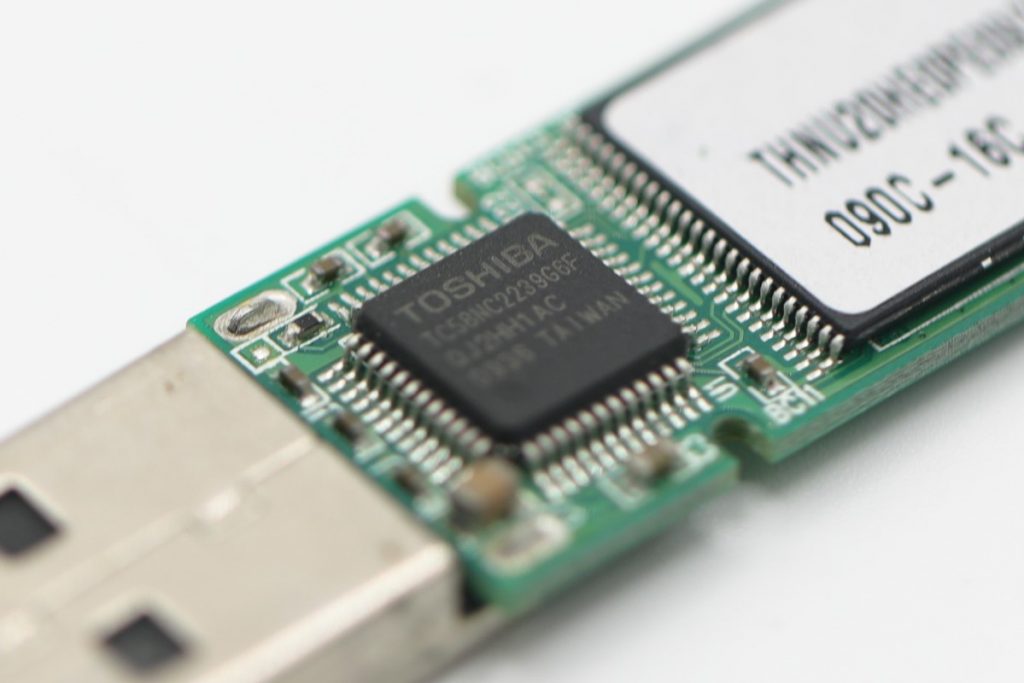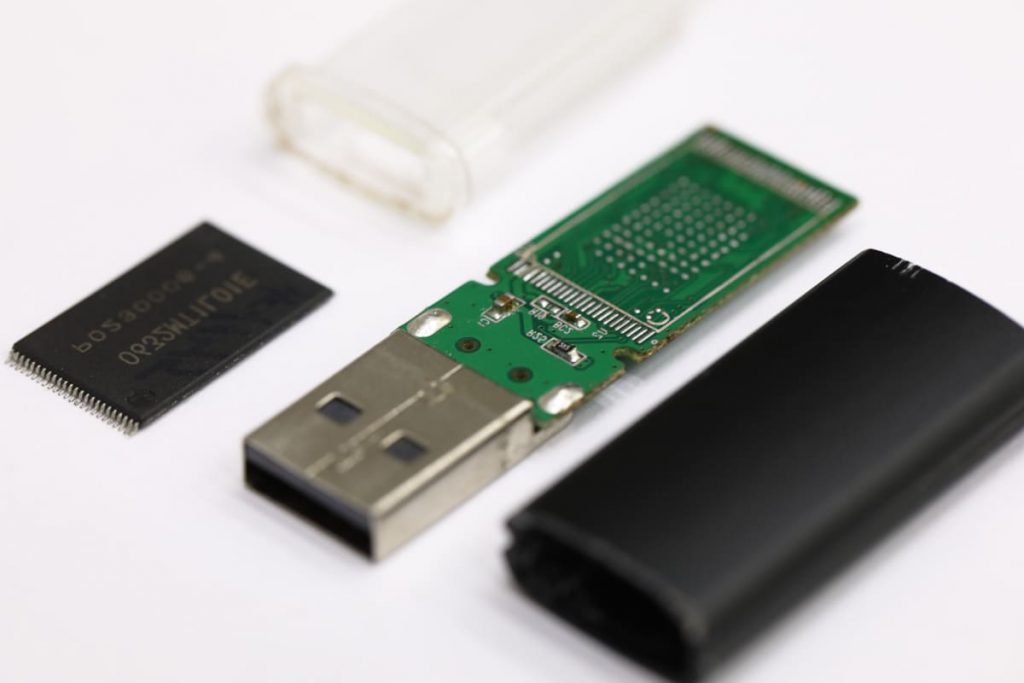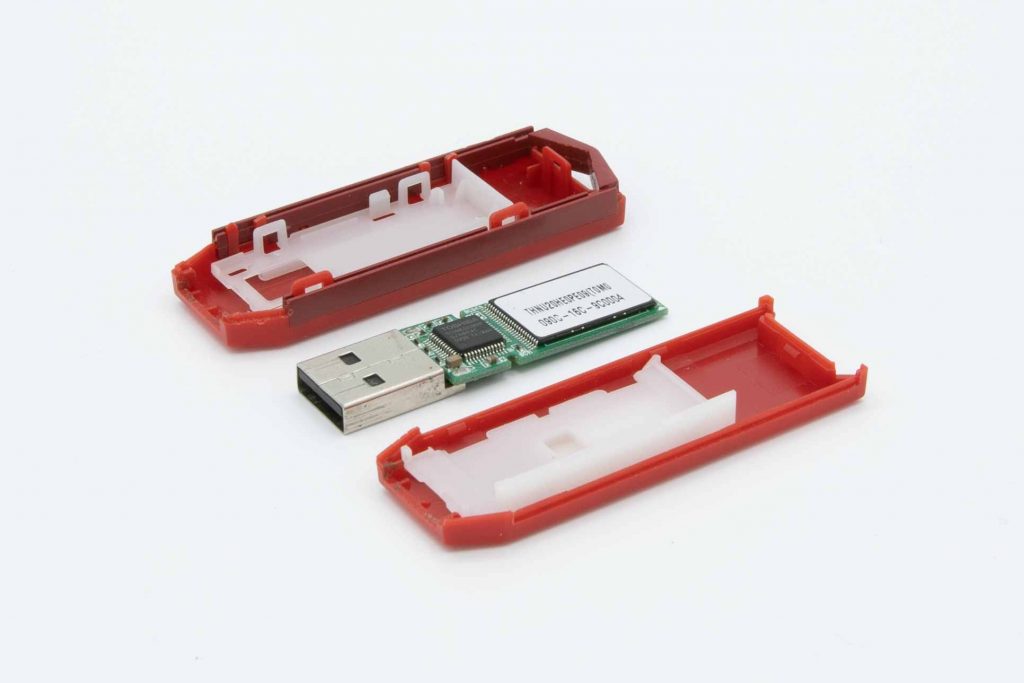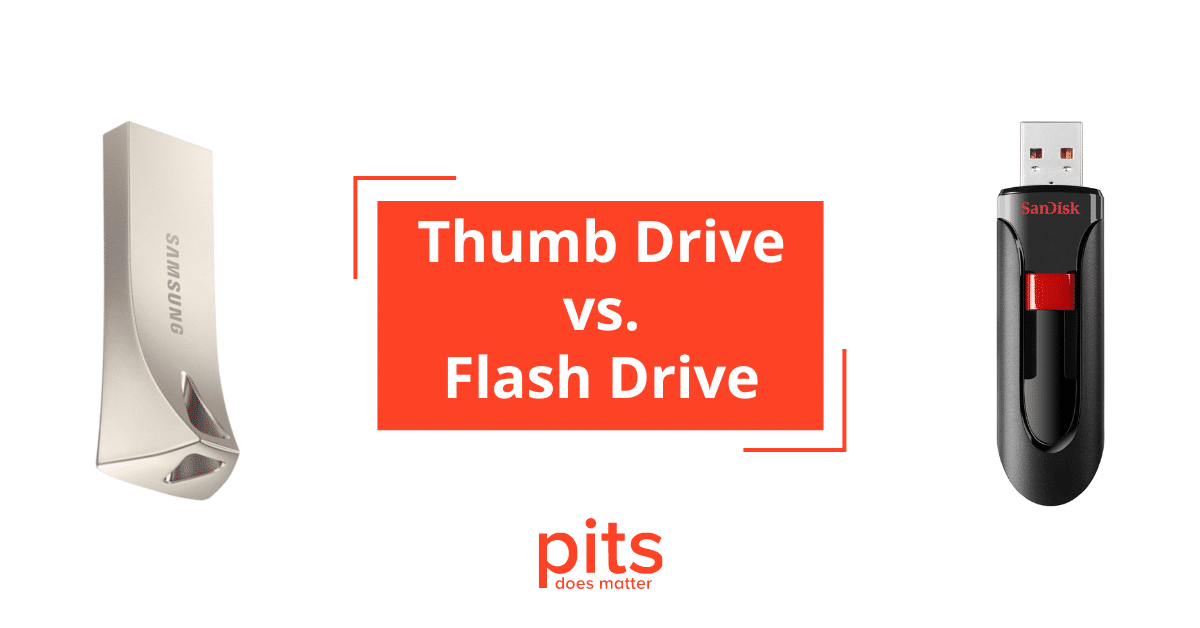Thumb Drive vs Flash Drive is a topic that often confuses and sparks debate among many tech users. Portable storage devices, such as thumb and flash drives, are often used interchangeably, causing potential confusion. Although these devices operate on similar principles, their terminology is based on distinct aspects of their design and usage. Having a clear understanding of the similarities and differences between these two options will assist in selecting the appropriate device for your storage requirements and provide valuable insights into the progression of digital storage mediums.
What is a Thumb Drive Used for?
What is a Thumb Drive Used for? A thumb drive, also known as a USB or flash drive, is essentially the same as a flash drive. Thumb drives earned their name due to their compact size, which conveniently fits on your thumb. They fulfill the same function as flash drives, enabling seamless data storage and transfer between various devices.
The terms thumb drive and flash drive can be used interchangeably, although some may argue that the two have slight differences. These drives are highly portable, making them ideal for transporting files from one place to another. Common uses of USB drives include:
- Backing up essential data.
- Carrying important files.
- Transferring data between computers.
- Even running portable applications.

Thumb drives also use flash memory, allowing them to retain data without power. Their usability extends to nearly all devices with a standard USB flash drive interface, including computers, laptops, game consoles, and some televisions.
What is the Difference Between a Thumb Drive and a Flash Drive?
When comparing Thumb Drive vs Flash Drive, the primary point to note is that they are essentially the same device, the two terms often being used interchangeably to describe a small, portable device that employs flash memory to store and share data between devices. Thumb drives, as the name suggests, are usually smaller than flash drives and designed to be conveniently portable. They can often be attached to keyrings or lanyards for easy access. Due to their compact size, they may offer lesser storage capacity compared to traditional flash drives.

On the other hand, flash drives are available in various sizes and shapes to meet different storage needs. They often offer larger storage capacities, making them suitable for more extensive storage requirements. Flash drives are an excellent solution for those who need ample space to store files, documents, or multimedia content. Some flash drives may also include extra features to improve usability and security. Certain flash drives may have encryption technology to guard sensitive data, giving users peace of mind about data privacy.
However, despite these differences, thumb and flash drives operate likewise when storing and transferring digital data. They both use flash memory, a non-volatile storage technology that retains data even when not powered. It makes them reliable and convenient options for storing and transporting important files for personal or professional use.
Similarities Between Flash Drives and Thumb Drives
A comparison of the thumb drive vs. flash drive reveals that both essentially serve the same purpose. While they might be referred to by different names, flash drives and thumb drives have many similarities. They both use flash memory for storage, are small and easy to carry around, use USB technology to connect to devices and work with most computers and laptops. Moreover, they come in different sizes and storage capacities. In conclusion, the debate of flash drive vs. thumb drive is primarily a matter of semantics as both terms refer to the same technology but with slight differences in design and storage capacity.
USB Thumb Drives and Flash Memory Technology
Flash drives have evolved significantly, with new models offering higher storage capacities, advanced security features, and faster read/write speeds. USB flash drives are now the go-to solution for portable data storage and transfer needs due to their compact size, convenience, and compatibility. USB flash drives are an excellent choice whether you need to transfer files between devices, carry important data on the go, or have a backup of essential documents and media files.
Overall, thumb and flash drives provide users with efficient, reliable, and versatile options for managing their digital data. With the rapid advancement of technology, it is intriguing to contemplate the future evolution of devices. When transferring or storing crucial data, one should consider the modest flash drive, which provides compact yet potent storage capabilities.

There are two primary types of computer memory: volatile and non-volatile. Volatile memory is temporary and requires a power source. For instance, RAM uses an electrical pattern to store data but loses everything when the power is turned off. On the other hand, non-volatile memory retains data even without power. NAND chips, which have no moving parts, are an example of this type of memory that can store information semi-permanently until it is deleted or formatted. USB flash drives utilize this kind of memory.
What are the Benefits of Using a Thumb Drive
Thumb drives are portable and convenient and offer numerous benefits, making them a top choice for many users. Let’s explore the key advantages of using this type of flash memory storage device:
| Features | Description |
|---|---|
| Ease of Use | They require no extra software or drivers, just a USB port for effortless data transfer. |
| Portability | These devices prioritize portability, effortlessly fitting in your pocket, purse, or keychain. |
| Compatibility | Thumb drives work on most computers and laptops with USB ports, ensuring compatibility across devices without concern. |
| Capacity | Thumb drives offer impressive storage capacities, making them ideal for large files and media. |
| Security | Certain thumb drives offer password protection and encryption to enhance data security. |
| Durability | Thumb drives are known for their durability in safeguarding crucial data because they do not have any moving parts. |
| Speed | Thumb drives offer good read and write speeds, especially those with USB 3.0 technology. |
| Reliability | With no moving parts, thumb drives are less likely to fail or get damaged, making them reliable for storing important data |
Thumb drives offer a cost-effective solution for storing and transferring data, as they are more affordable than other storage devices. With a wide range of capacities available, you can effortlessly find one that fits your needs without straining your budget. Their versatility and affordability make them an excellent choice for data storage.
Even though thumb drives are known for their reliability, our devices can fail. If you are facing a situation where you have lost critical data, it is advisable to seek assistance from our reliable data recovery services. PITS Global Data Recovery Services is a reputed and widely recognized name in this field, renowned for its expertise in data retrieval from USB flash drives.
Our highly reputable organization has a team of skilled engineers who utilize advanced tools and techniques to retrieve lost or inaccessible data safely. Whether your thumb drive has been physically damaged, accidentally formatted, or corrupted, PITS Global Data Recovery Services is fully qualified to handle all data recovery situations.
Frequently Asked Questions
Are Thumb Drives Safe to Use?
Many people consider thumb drives to be a secure data storage method because they are designed to provide security. They offer added features like password protection and data encryption. Nevertheless, thumb drives can be vulnerable to malware and hacking, similar to other digital storage devices.
Are flash drives and thumb drives the same thing?
Both devices are identical, though there might be slight differences in certain features and design aspects when comparing them. Flash and thumb drives offer convenient ways to store and transport data, making them essential tools for everyday digital activities. Whether you call it a flash drive or a thumb drive, these portable devices serve the same function.
How Does a Thumb Drive Differ from a Flash Drive?
A thumb drive is a compact storage device that can be conveniently transported and connected to a computer. While some individuals use the term thumb drive due to its small size, others may use it specifically for flash drives with retractable USB connectors. It is worth mentioning that thumb drive and flash drive have the same meaning and can be used interchangeably.
Which is better, a flash drive or an SD card?
Flash drives and SD cards are popular storage devices for storing digital data, but they each have strengths and weaknesses. Flash drives offer better read and write speeds, while SD cards have higher capacities. The choice between the two ultimately relies on personal preference and specific usage needs.
